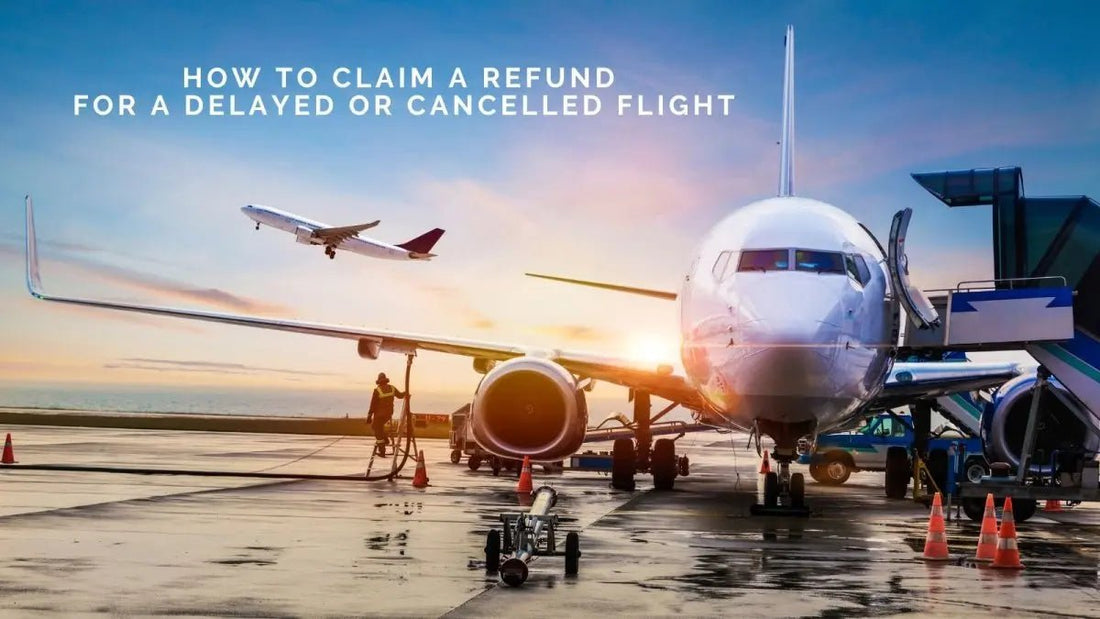
How to Claim a Refund for a Delayed or Cancelled Flight
Share
Travelling by air can be a stressful experience, and it becomes even more frustrating when your flight is delayed or cancelled. However, as a passenger, you have rights, and you may be entitled to a refund or compensation from the airline. Here’s a step-by-step guide to help you navigate the process of claiming a refund.
Understand Your Rights
Before you start the refund process, it’s essential to know your rights as a passenger.
These rights can vary depending on where you're flying from or to, but most countries have regulations in place to protect passengers. For example:
In the European Union: Under EU Regulation 261/2004, passengers are entitled to compensation if their flight is delayed by more than 3 hours, cancelled, or if they are denied boarding due to overbooking.
In the United States: The Department of Transportation (DOT) mandates that passengers are entitled to a full refund if their flight is cancelled, regardless of the reason, or if the delay is significant and the passenger chooses not to travel.
Check the specific regulations that apply to your journey to understand what you’re entitled to.
Contact the Airline Directly
The first step in claiming a refund is to contact the airline directly. You can usually do this through their customer service line, via email, or through their official website.
When you contact them, be prepared with the following information:
Your booking reference or ticket number
Details of the delayed or cancelled flight (flight number, date, and time)
Your personal details (name, email, phone number)
Be clear about your request. If you are seeking a refund, state that explicitly. If you're seeking compensation for additional expenses incurred due to the delay or cancellation (e.g., hotel stays, meals), be sure to mention that as well.
Document Everything
Keep a detailed record of all communications with the airline, including emails, chat logs, and notes from phone conversations. If the airline offers compensation instead of a refund (such as vouchers or rebooking), ensure you get the details in writing.
If your claim is related to additional expenses, keep all receipts for any costs you incurred due to the delay or cancellation. This might include accommodation, food, or transportation.
Be Aware of Time Limits
Many airlines have specific time limits for claiming refunds or compensation. For example, under EU law, you generally have up to two years to file a claim.
Check the airline’s policy and the relevant regulations to ensure you submit your claim within the required time frame.
Escalate the Claim if Necessary
If the airline denies your claim or offers inadequate compensation, don’t be afraid to escalate the issue. You can:
- File a complaint with a regulatory body: In the EU, this could be the National Enforcement Body (NEB). In the U.S., you can file a complaint with the Department of Transportation.
- Use alternative dispute resolution (ADR): Many countries offer ADR services that help mediate disputes between passengers and airlines without going to court.
- Seek legal advice: If all else fails, consider seeking legal advice to pursue your claim.
Consider Travel Insurance
If you purchased travel insurance, check if it covers flight delays or cancellations. Some policies offer compensation for these issues, which can help you recover costs that the airline may not cover.
Know When to Accept Alternative Compensation
Sometimes airlines may offer vouchers or miles instead of a cash refund. While this might be tempting, especially if the amount is higher than the refund, consider your travel plans before accepting. If you don't fly frequently, a cash refund may be more beneficial.
Dealing with a delayed or cancelled flight is never pleasant, but understanding your rights and following the correct process can help you secure the refund or compensation you deserve. Always stay informed, keep thorough records, and don’t hesitate to escalate your claim if necessary.
Safe travels!